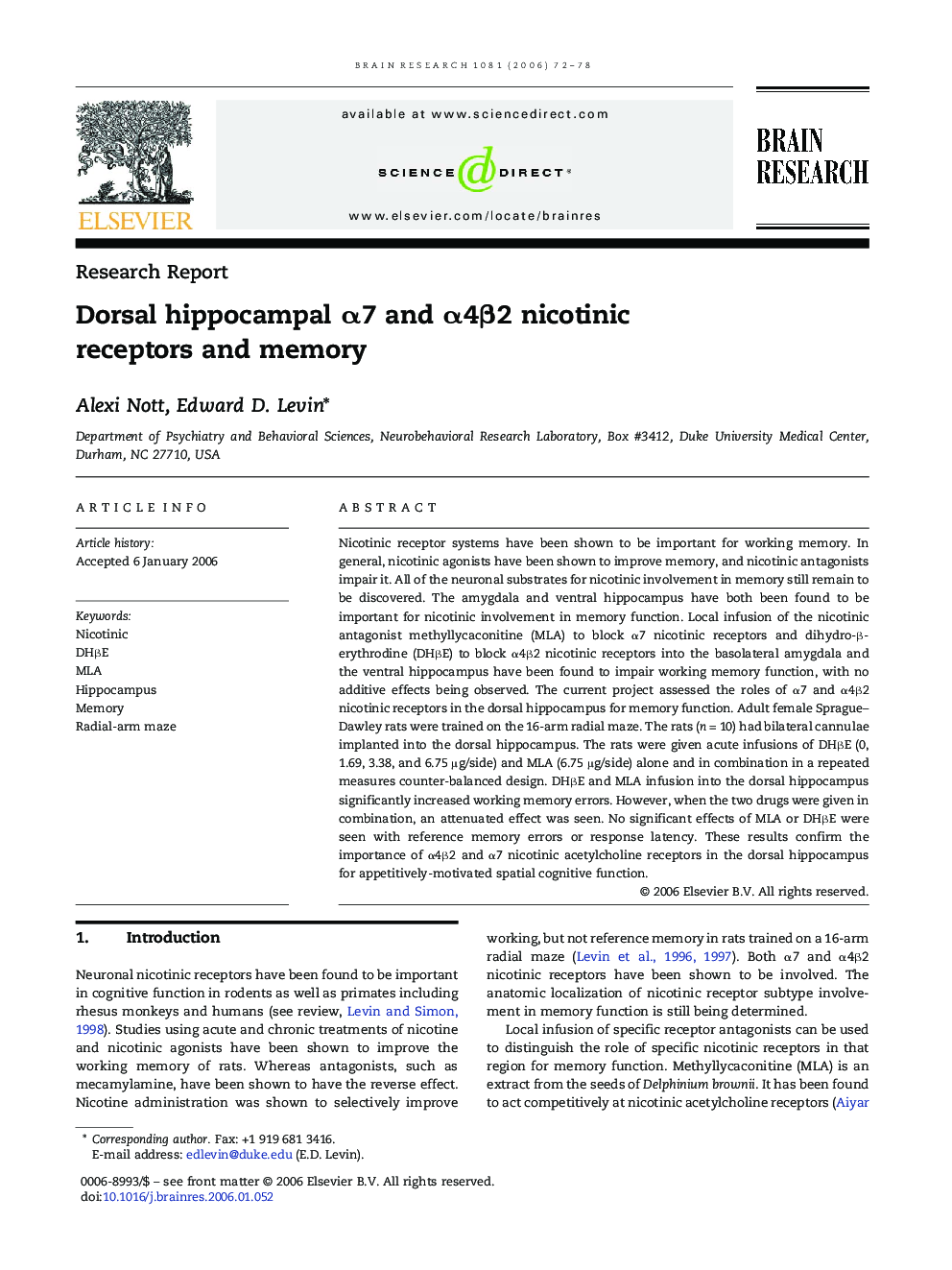| Article ID | Journal | Published Year | Pages | File Type |
|---|---|---|---|---|
| 4332929 | Brain Research | 2006 | 7 Pages |
Nicotinic receptor systems have been shown to be important for working memory. In general, nicotinic agonists have been shown to improve memory, and nicotinic antagonists impair it. All of the neuronal substrates for nicotinic involvement in memory still remain to be discovered. The amygdala and ventral hippocampus have both been found to be important for nicotinic involvement in memory function. Local infusion of the nicotinic antagonist methyllycaconitine (MLA) to block α7 nicotinic receptors and dihydro-β-erythrodine (DHβE) to block α4β2 nicotinic receptors into the basolateral amygdala and the ventral hippocampus have been found to impair working memory function, with no additive effects being observed. The current project assessed the roles of α7 and α4β2 nicotinic receptors in the dorsal hippocampus for memory function. Adult female Sprague–Dawley rats were trained on the 16-arm radial maze. The rats (n = 10) had bilateral cannulae implanted into the dorsal hippocampus. The rats were given acute infusions of DHβE (0, 1.69, 3.38, and 6.75 μg/side) and MLA (6.75 μg/side) alone and in combination in a repeated measures counter-balanced design. DHβE and MLA infusion into the dorsal hippocampus significantly increased working memory errors. However, when the two drugs were given in combination, an attenuated effect was seen. No significant effects of MLA or DHβE were seen with reference memory errors or response latency. These results confirm the importance of α4β2 and α7 nicotinic acetylcholine receptors in the dorsal hippocampus for appetitively-motivated spatial cognitive function.
